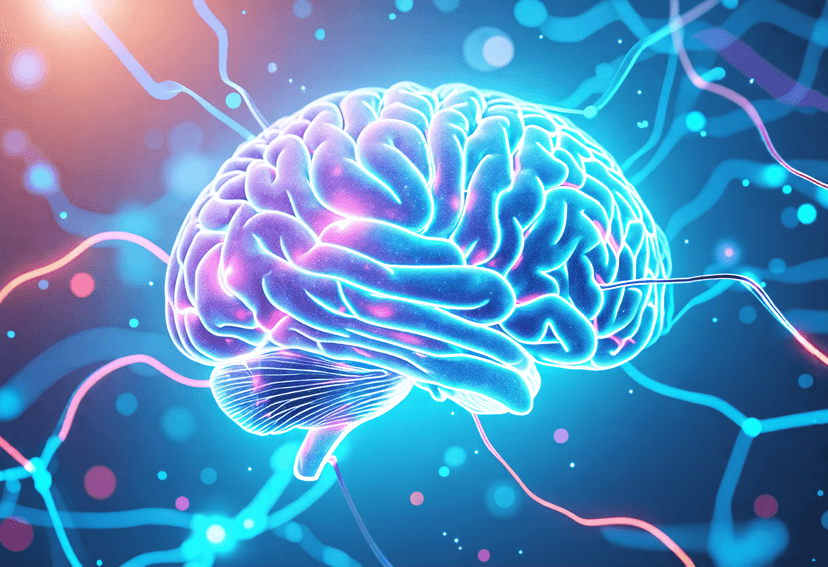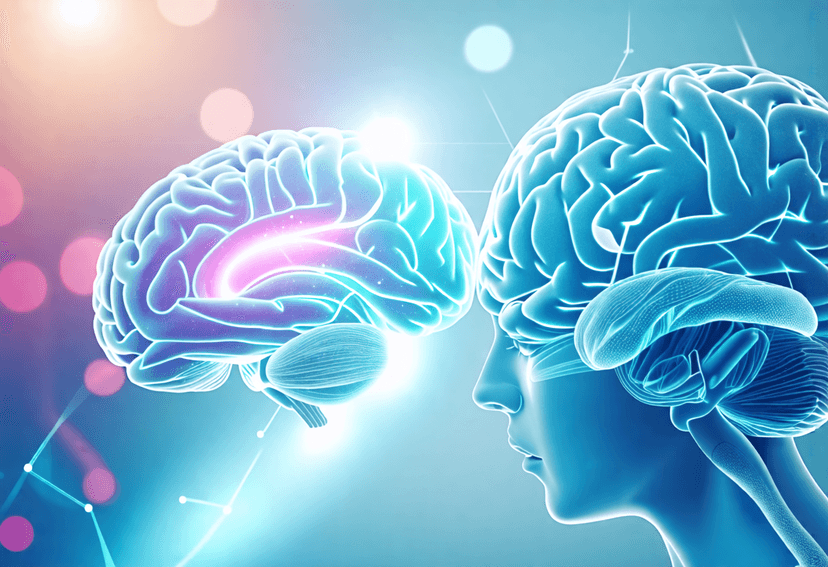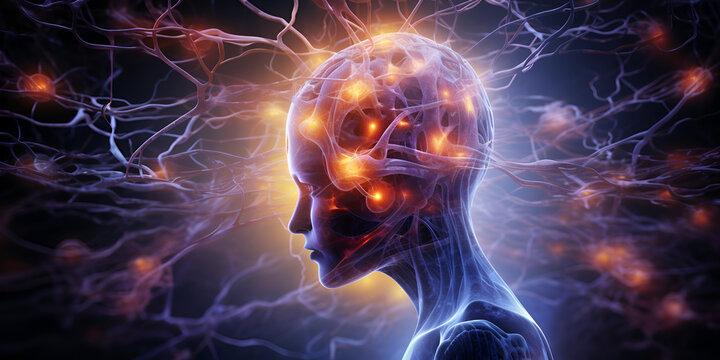
Medical Management of Seizures
08 Sep, 2022
 Healthtrip Team
Healthtrip TeamAn Overview of Seizure
A seizure is basically an abnormality caused due to electrical activity in the brain. It is a kind of neurological disorder that requires medications and proper management of seizures in order to improve quality of life. There are different types of seizures depending on the symptoms and severity of them; some seizures last for a few seconds while others might continue for several minutes. Seizures can also cause conditions such as a change in behavior, change in movements of the body, loss of consciousness, abnormal mood swings, change of feelings, etc. Seizures are more common than one might think and if a person experiences a seizure more than once in 24 hours then they require medical assistance as soon as possible. Repetitive seizures are signs of epilepsy therefore the doctor might check you for epilepsy as well.What are the different types of seizures?
Most popular procedures in India
The different types of seizures might include:
Wellness Treatments
Give yourself the time to relax
Lowest Prices Guaranteed!

Lowest Prices Guaranteed!
A. Focal Seizures (Partial Seizures):
1. Simple Focal Seizures:
These seizures originate in a specific part of the brain and affect only one part of the body or function. During these seizures, the person remains conscious and aware. They may experience things like muscle twitches or unusual sensations, such as tingling or a sudden smell.
2. Complex Focal Seizures:
Like simple focal seizures, these start in one area of the brain. However, they often lead to a change in consciousness or awareness. People having complex focal seizures may exhibit unusual behaviors like lip smacking, picking at their clothes, or wandering around without purpose.
B. Generalized Seizures:
1. Absence Seizures (Petit Mal Seizures): Absence seizures are brief episodes where a person appears to briefly "zone out" or stare into space. They usually last just a few seconds. During an absence seizure, the person may not respond to their surroundings and might not even remember it happening afterward.
2. Tonic Seizures: Tonic seizures cause muscles to suddenly become stiff. This stiffness often affects the arms, legs, or trunk. If the legs are involved, it can lead to a person falling.
3. Clonic Seizures: In clonic seizures, muscles jerk rhythmically. This can result in repetitive, shaking movements of the arms and legs.
4. Myoclonic Seizures: Myoclonic seizures manifest as quick, sudden muscle jerks or twitches. They can be single jerks or occur in a series.
5. Tonic-clonic seizures (Grand Mal Seizures): These are the most well-known and dramatic seizures. They involve two phases: the "tonic" phase where the body stiffens like a board, followed by the "clonic" phase with rhythmic jerking of the limbs. Tonic-clonic seizures are often accompanied by other symptoms like foaming at the mouth and loss of bladder control. The person loses consciousness during these seizures.
6. Atonic Seizures: Atonic seizures result in a sudden loss of muscle tone. This means that the muscles go limp, causing a person to collapse or fall.
Other Types of Seizures:
1. Infantile Spasms: These seizures are seen in infants and involve sudden, brief muscle contractions or spasms. They often occur in clusters and can be quite alarming for parents.
2. Febrile Seizures: Febrile seizures are triggered by a high fever, typically in young children between 6 months and 5 years old. They are usually brief and do not typically lead to epilepsy.
3. Non-epileptic Seizures: These seizures resemble epileptic seizures in appearance but are not caused by abnormal electrical activity in the brain. They may result from psychological factors or other underlying medical conditions.
Also, read - Is Epilepsy Genetic?
Some common symptoms of seizures
Different types of seizures usually have different symptoms and warning signs. Some of the common symptoms of seizures might include:
- Loss of Consciousness: Many seizures involve a loss of consciousness, where the person becomes unaware of their surroundings.
- Muscle Jerking or Twitching: Rhythmic or jerking movements of the arms, legs, or other parts of the body can occur during some seizures, particularly tonic-clonic (grand mal) and myoclonic seizures.
- Stiffening of Muscles: Some seizures, like tonic seizures, cause muscles to become suddenly stiff.
- Blank Staring or Absence: Absence (petit mal) seizures may cause a person to briefly stare into space, seeming unresponsive.
- Automatisms: These are repetitive, purposeless actions that can occur during complex focal seizures. Examples include lip-smacking, picking at clothing, or repetitive hand movements.
- Sensory Changes: Some people experience sensory symptoms during seizures, such as tingling sensations, strange tastes or smells, or visual disturbances.
- Loss of Muscle Tone: In atonic seizures, there's a sudden loss of muscle tone, causing a person to collapse or fall.
- Alterations in Awareness: During complex focal seizures, individuals may have altered consciousness or awareness. They may feel confused, dreamy, or disconnected from reality.
- Vocalization: Some seizures can involve vocalization, such as making unusual sounds or nonsensical speech.
- Involuntary Movements: In addition to muscle jerking, some seizures can lead to involuntary movements like head nodding or shaking.
- Emotional Changes: Seizures can sometimes lead to emotional changes, including fear, anxiety, or sudden laughter or crying.
- Loss of Bladder or Bowel Control: This can occur during some seizures, particularly tonic-clonic seizures.
Diagnosis for seizures
The doctor usually begins with a physical examination and then, later on, asks for a neurological exam that consists of a medical exam that consists of emotional status, testing of motor skills and mental functioning, etc in order to see the mental condition of the patient and identify the type of seizures.Some of the other tests include:
- Blood test
- Electroencephalography or EEG is a test in which the electrodes are attached to the brain in order to monitor its electrical activity of it.
- Magnetic resonance imaging is used in order to see any abnormality or blood clot.
- CT or a PET scan in order to see if there is any problem in the brain or not.
Also, read - Neurological Disorders and their Symptoms
Seizures Disorder Treatment
- The treatment for seizures usually depends upon the cause and type of seizures. It is necessary to identify the type of seizures and the cause of them as it helps in providing accurate treatment.
- Seizures can be treated with the help of medication such as anti-epileptic drugs that are quite helpful in cases of seizures and people who experienced multiple seizures. According to neurologists in India, It is seen that this type of medication has an efficacy of over 70% in controlling seizures.
- Brain surgery is recommended in conditions where the seizures become quite regular and uncontrollable; it is usually done in cases such as epilepsy where medications do not work.
- Dietary and Lifestyle changes are also seen to have a positive outcome in the management of seizures. The ketogenic diet has helped a lot of people suffering from seizures.
- Vagus nerve stimulation is another treatment method that involves placing electrodes around the Vagus nerve that helps in stimulating the nerve that helps in managing seizures.
Medical management of seizure
As mentioned above the different types of treatment that are available to treat seizures that help a lot in the medical management of epilepsy and seizures. It is seen that over 70% of the people who suffer from seizures have been treated with a high success rate. The best neurologist in India usually tries to understand the trigger movements of seizures which also helps in the management of seizures.
Also, read - Appendix Removal Surgery - Symptoms, Cost, Recovery
Can seizure be cured?
Seizures can usually be managed with the help of proper treatment. It is seen that regular treatment can help people who suffer from severe seizures such as in the condition of epilepsy. It is seen that in many cases people completely stop having seizures.
How to control seizures?
Seizures can basically be controlled with the help of medications. In most cases, people take medications which are also known as anti-epileptic medications that help in decreasing the frequency and density of the seizure.
Also, read - Cervical Cancer Vaccine Price & Risk Factors
How can we help with the treatment?
If you are looking for any kind of neurosurgery treatment in India such as treatment for seizures or epilepsy then be assured, that we will assist you and guide you throughout your medical treatment and will be physically present with you even before it begins.The following will be provided to you:
- The global network of 35 + countries, connect to renowned doctors.
- 335+ top hospitals, including Fortis and Medanta.
- Post-treatment support, 24/7 assistance.
- Teleconsultations at $1/minute.
- Trusted by 44,000+ patients.
- Access top treatments, and real patient insights.
- Prompt emergency assistance.
- Pre-scheduled specialist appointments.
Related Blogs

The Future of Epilepsy Treatment
Advancements in epilepsy treatment, and what to expect in the

Epilepsy and Exercise: Is it Safe?
The benefits and risks of exercise for individuals with epilepsy,

The Role of Diet in Epilepsy Management
How dietary changes can help manage epilepsy, and what foods

Epilepsy Medication: What You Need to Know
Understand the different types of epilepsy medications, their side effects,

Leading Hospitals for Epilepsy in the UAE
Living with epilepsy or supporting someone who is? Finding the

Epilepsy Treatment in India: A Comprehensive Guide
Is epilepsy disrupting your life or the life of someone










